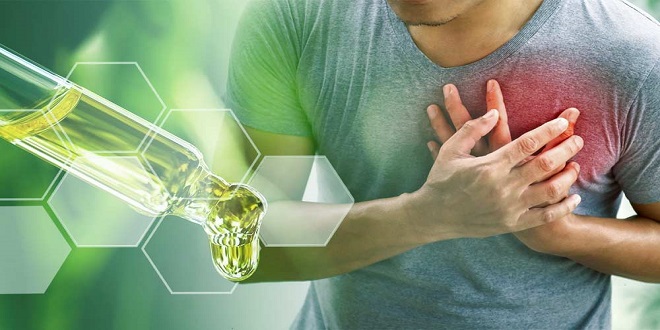An increase in heart rate is one of the most prevalent undesired side effects of cannabis and one of the most unpleasant and may even turn off novice users. “If you don’t explain that it’s likely that you’ll have a little heart rate increase for 5 to 10 minutes and that it’s nothing to worry about,” Janosch Kratz, MD, stated on The Cannabis Enigma podcast, “he becomes concerned and exclaims, ‘Oh God, why did I take this drug?'”
Cannabis-induced tachycardia is normally safe in healthy people, and learning more about what cannabis does to your body might help you feel better about the uncomfortable sensation. So, why does cannabis have the ability to increase your heart rate? Is it hazardous? And what are you going to do about it? Let’s have a look.
In general, how does cannabis affect your heart?
Cannabis has various frequent side effects, ranging from minor ones like red eyes and dry mouth to more serious ones like anxiety, paranoia, and short-term memory problems.
These negative effects and how cannabis affects the cardiovascular system are linked to how the end cannabinoid system is modulated by cannabis. Hunger, pain, sleep, and energy are just a few biological activities influenced by the end cannabinoid system.
Cannabinoids, the primary active compounds in cannabis, can activate receptors that govern the end cannabinoid system, altering the function of those receptors and the related systems, including the cardiovascular system.
“The documented cardiovascular adverse effects [from cannabis] seem to be driven by the interactions of the end cannabinoid system with the autonomic nervous system,” stated a group of experts who recently analyzed years of cannabis studies1.
Why does marijuana make your heart race?
Tachycardia, an elevated or irregular heart rate, is a side effect of cannabis consumption. Cannabis smoking may cause a 20-100 percent rise in heart rate for many hours or longer after consumption. It is thought to be related to widening blood vessels, which also causes the red eyes that many experiences after taking cannabis.
Cannabis may cause a reduction in blood pressure, which can cause dizziness and lightheadedness in large dosages. Tetra hydro cannabinol (THC), the cannabinoid responsible for marijuana’s high, is usually thought to be the principal cause of these effects.
According to one of the well-regarded older studies, inhaling cannabis smoke and consuming THC elevates heart rate by 20-50 percent above baseline. THC also affects catecholamine levels in the circulation, according to a 1985 lab research on mice. Catecholamines are hormones generated by the adrenal glands and are responsible for the body’s “fight or flight” reaction.
According to research, the intensity of adverse effects frequently diminishes as one’s tolerance to cannabis increases3. It implies that frequent inhaled cannabis adverse effects like increased heart rate and lowered blood pressure are less prevalent among regular users.
In other words, the influence on heart rate, like certain other cannabis adverse effects, may be linked to the act of smoking.
Could lesser THC strains have a lessening effect on your heart rate?
Given that THC is often blamed for the elevated heart rate associated with cannabis use, one would reason that adopting lower-THC strains — or lower dosages in general — would help reduce the problem. It follows that ingesting THC-rich edibles might have the same negative effects.
In a 1988 study, women who were given extremely delta 10 THC joints saw “statically significant elevations in heart rate,” which were more prominent and persisted longer for those who had previously used marijuana intermittently5. However, no control group was given a lower amount of THC in the study.
Type I cannabis refers to the most well-known and prevalent strains (more accurately referred to as “chemovars”), which are rich in THC and low in cannabidiol (CBD) and generally grown for powerful high and therapeutic advantages. Type II chemovars have a better mix of CBD and THC, but Type III chemovars contain more CBD and little to no THC.
Although all varieties of cannabis may be used medically, types II and III allow for greater THC dosage control. Healthcare experts often choose them because of the lower risk of adverse effects. Despite modest levels of THC, Type III cannabis is typically regarded as non-intoxicating.
What about CBD, for example?
CBD, which does not produce intoxication, is increasingly thought to be able to mitigate some of THC6’s effects. CBD may change the way THC binds to particular end cannabinoid receptors.
In other words, employing a strain with less THC or a CBD-dominant profile will generate a less potent high and may minimize the anxiety that sometimes comes with a THC high. In terms of CBD’s effects on the heart, a 2017 study indicated that a single dosage of CBD decreased resting blood pressure and helped moderate stress-induced elevations in blood pressure and heart rate.
“The limited research on the effects of CBD reveals that this cannabinoid may counterbalance some of the negative effects of THC,” according to a 2013 review published in Frontiers in Psychology, which looked at CBD’s capacity to neutralize the “adverse psychological consequences of THC.”
Is it better to smoke Sativa or Indica for your heart rate?
In the cannabis world, it’s good knowing that Sativa strains are cheery while Indica strains are relaxing and more prone to cause “couch lock.” Countless cannabis users utilize these categorizations to help them make buying or consumption choices. Unfortunately, there aren’t many scientific data to back up the idea of vs. Sativa to separate the effects of various cannabis strains. What matters is the chemovar’s cannabinoid profile (how much THC, CBD, and other cannabinoids it has) and its terpene profile.
Conclusion
It’s also worth noting that this may be rather individualistic. The proper dosage for one person may differ from the right dose for another, and a strain that makes one person highly happy and giggly may cause couch-lock in another. While one user may find a certain strain particularly soothing, another may feel anxiety or paranoia, but this does not mean that this is a universally experienced effect of the cannabis variety in question. Increased heart rate might be the same way.
 Pagalmusiq.com Popular News Update Website | Pagalmusiq.com
Pagalmusiq.com Popular News Update Website | Pagalmusiq.com




